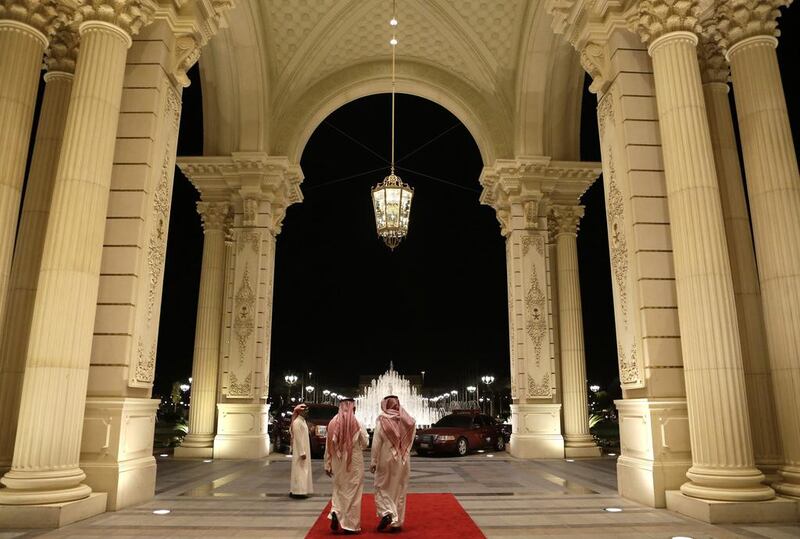International hotel chains operating in Saudi Arabia are ramping up training programmes to increase the number of Saudis at their properties as the kingdom’s hospitality sector booms.
The country is already a significant market for hoteliers and is set for expansion given huge infrastructure investments, demand for hotels for inbound corporate and domestic leisure visitors, and the growing number of religious travellers.
There is also a requirement from the government to increase the intake of Saudi nationals in the private sector. Of the country’s 30.7 million people last year, 5.7 per cent of the population were unemployed. Among the 20.7 million Saudi nationals, the unemployment rate was 11.7 per cent.
Launched in November 2013, the French hotel group Accor’s 15-month Saudi Management Trainee Programme (SMTP), will open its second edition next month with 24 students and expand to include women this year. Accor alone needs more Saudi employees as it expects to open 28 properties in four years in the kingdom.
Among them is the 800-room Pullman Medina, which expects to have 500 employees, and has a target of 40 per cent, or 200, Saudis on its staff.
“One of the main challenges of the hospitality industry is to attract and keep Saudi nationals, as turnover for Saudi nationals is extremely high because [there are] a lot of job opportunities for them and competition is quite high,” said Amar Belgat, the director of human resources at Accor Egypt and Saudi Arabia.
“Sometimes they don’t feel they have great prospects in the industry, and so we have to make sure we have solid learning and development [programmes] for them.” The SMTP programme started with 16 students and retained 13 of them in management positions such as front office or reservation managers at Accor’s 17 hotels in the country. About 30 per cent of Accor’s total staff in the country are now Saudis, Mr Belgat said.
The number of women is also increasing. From none as of 2010, some Accor properties now employ up to 30 Saudi women each.
“We need to be prepared for the massive number of recruitments,” Mr Belgat said. “But we are still having challenges in recruitments in [departments such as] housekeeping.”
Hilton Worldwide has 27 properties in the pipeline in the country accounting for more than 8,350 rooms – one third of its hotels planned for the Middle East and Africa. It currently has eight hotels, with more than 3,000 rooms.
Hospitality is developing as a viable career option in the country, especially for young Saudis, according to Ben Bengougam, the vice president of human resources for Europe, Middle East and Africa at Hilton Worldwide.
Its training programme Mudeer Al Mustaqbal (The Future Manager and Passport to Success) repares Saudi nationals over a two-year period for food and beverage, front office and housekeeping managerial roles. It also has programmes to improve on-the-job skills. Four people from Makkah Hilton graduated last year from the Mudeer Al Mustaqbal programme, and this year the company has expanded its participation to four hotels in Mecca, Riyadh and Dhahran, and also admitted its first female candidate.
“We have young Saudis who have joined us in operational roles, in housekeeping, the kitchen and the front desk who are already thriving within our business,” Mr Bengougam said. The Saudi government introduced the Nitaqat programme in 2011. It requires companies such as hotels to hire a percentage of Saudi nationals depending on the company’s activity and size.
This replaces a programme that required private companies to have 30 per cent of staff drawn from Saudi nationals.
Accor expects to be in the top-performing range of the new programme, employing Saudis in 30 per cent of its positions.
ssahoo@thenational.ae
Follow The National's Business section on Twitter






